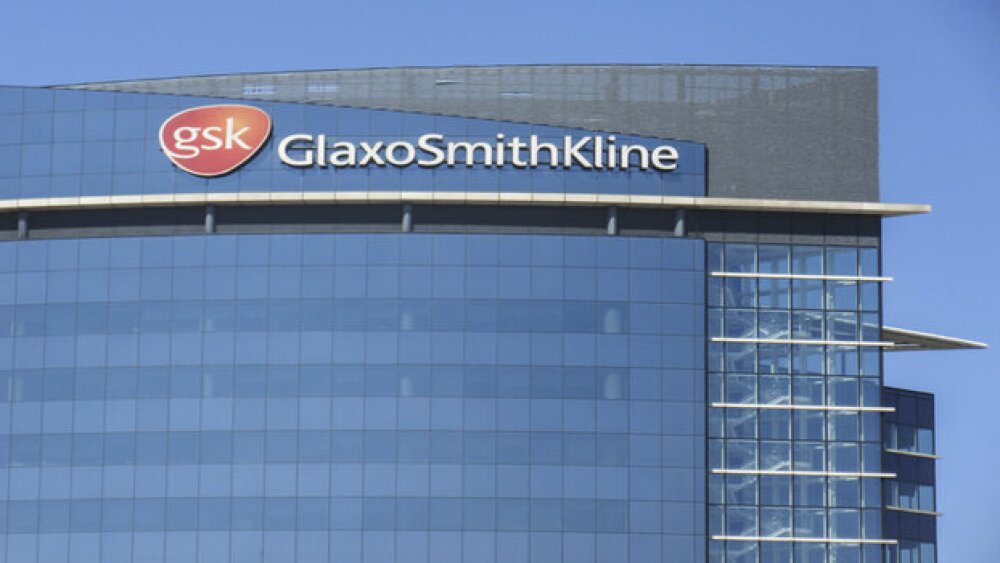The oral antibiotic, which is also in development for uncomplicated urinary tract infections, demonstrated non-inferiority to the most common treatment for gonorrhea.
Pictured: GSK sign at its headquarters in London/iStock, William Barton
GSK is touting results from a Phase III trial of its oral antibiotic gepotidacin in patients with uncomplicated urogenital gonorrhea, the company announced Monday.
In the EAGLE-1 trial, GSK’s gepotidacin met its primary endpoint showing non-inferiority to a combination of ceftriaxone and azithromycin, a standard treatment for gonorrhea. According to GSK, the results are based on the primary endpoint of microbiological response at the test-of-cure visit three to seven days post-treatment.
However, the exact details of the late-stage results were not disclosed by GSK and will be revealed at an unspecified medical meeting. The company also plans to share the study details with global health regulators.
“With rising incidence rates and concern around growing resistance to existing treatments, gonorrhea poses a threat to public health globally. These positive headline results demonstrate the potential for gepotidacin to provide a novel oral treatment option in the face of rising resistance and for patients who cannot take other treatments due to allergies or intolerance,” Chris Corsico, senior vice president of development at GSK, said in a statement.
GSK said that the drug’s tolerability and safety profile were consistent with what was found in prior trials. Gepotidacin is a potential first-in-class oral antibiotic in the triazaacenaphthylene class with a novel mechanism of action. The drug is designed to bind to a unique DNA gyrase and topoisomerase site to prevent bacterial DNA replication.
The company is also investigating gepotidacin in uncomplicated urinary tract infection (uUTI). Two Phase III studies—EAGLE-2 and EAGLE-3—reported positive results last year.
In April 2023, gepotidacin succeeded in 50.6% of patients in EAGLE-2, meeting the primary endpoint of non-inferiority to nitrofurantoin. While in EAGLE-3, the drug showed “therapeutic success” in 58.5% of patients, demonstrating statistical superiority. In both trials, 94% of patients who took gepotidacin did not take any additional antibiotic for uUTI.
There have been other recent advancements in the potential treatment of gonorrhea. In January 2024, Dutch vaccine biotech Intravacc was awarded $633,000 from non-profit CARB-X to develop a vaccine to prevent the disease. The company announced the vaccine will be developed in its outer membrane vesicle platform.
In December 2023, Reece Pharmaceutical posted results for its antibacterial candidate aiming to treat Neisseria gonorrhoeae (N. gonorrhea), which showed that mice treated with its candidate showed a 99.99% reduction in bacterial shedding and positive activity.
Tyler Patchen is a staff writer at BioSpace. You can reach him at tyler.patchen@biospace.com. Follow him on LinkedIn.






